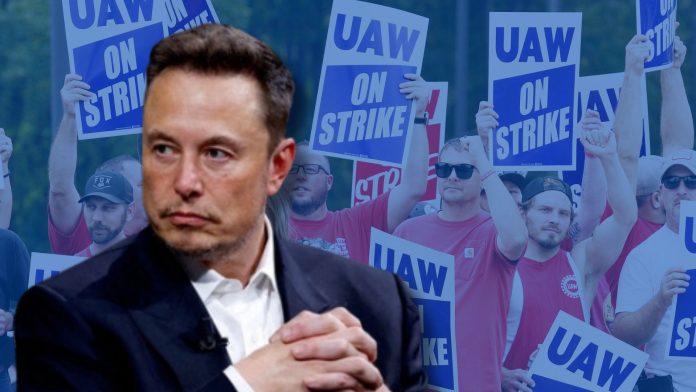Tesla will boost worker pay across the U.S. in an effort to keep wages competitive with market norms, several months after the United Auto Workers (UAW) union won considerable raises for its members at Stellantis, Ford, and General Motors.
According to Bloomberg, notices were distributed at the electric vehicle brand’s assembly plant in Fremont, California, informing employees that a “market adjustments pay increase” would be implemented for various manufacturing positions at all U.S. sites. In December, Tesla revealed it would raise wages up to 10% at its battery production facility in Nevada.
The UAW is currently holding unionization campaigns at multiple manufacturing sites across the U.S., two of which have garnered enough support to go public: the movement at Volkswagen’s Tennesee plant, unveiled in December, and the movement at Mercedes-Benz’s Alabama plant, unveiled this Thursday.
The EV brand’s decision to raise wages comes shortly after the UAW posted an online form specifically for Tesla employees, allowing them to sign digital union authorization cards. At least 30% of a plant’s workforce must submit these cards for the UAW to make its campaign public and pursue an official pathway to unionization with the National Labor Relations Board (NLRB).
Like most automotive executives, Tesla CEO Elon Musk has opposed unionization, arguing labor organizations create division between team members. “I think it’s generally not good to have an adversarial relationship between one group at the company and another group,” Musk commented during the New York Times’ DealBook Summit last November. “I think the unions naturally try to create negativity in a company.”
In keeping with its strategy at Volkswagen and Mercedes-Benz, it is likely the UAW will formally call on Tesla to acknowledge the creation of a new union once employee support hits 70%. If the company refuses to do so voluntarily, the NLRB will be asked to hold an official vote.
Tesla is currently facing resistance from automotive labor groups in Sweden, Norway, and Finland following its refusal to sign an agreement with Swedish manufacturing employees. Unions outside the car industry have also joined the protest out of solidarity for worker’s rights, with some Scandinavian organizations refusing to deliver license plates or handle shipments of the company’s products.




